🎄 Christmas Will Break Your Heart ❤️🩹
"Last Christmas," "The Remarkable Life of Ibelin," and My Own Teenage Near Death Medical Experience
Christmas is my favorite time of the year. It’s also a time that evokes in me a lot of complex emotions rooted in past trauma. Five years ago a movie was released that spoke to me deeply about how those conflicting emotions can swirl all around you.
Written by Emma Thompson and directed by Paul Feig, the Christmas-set romantic fantasy Last Christmas was named after the titular Wham! song and inspired by the music and lyrics of the late British musician George Michael. It centers on twenty-six-year-old aspiring singer Kate (Emilia Clarke), who works full time at a Christmas store owned by a woman who calls herself Santa (Michelle Yeoh). Kate is a walking disaster, surfing from one friend’s couch to another, alienating everyone in her life. She’s mostly estranged from her family, including her mother Petra (Thompson), her father Ivan (Boris Isaković), and her sister Marta (Lydia Leonard). One fateful day she meets a charming man named Tom (Henry Golding), who only she seems to be able to see. A year earlier Kate had a heart surgery around Christmastime and has been floundering in every aspect of her life ever since. Like almost everyone guessed when the trailer dropped before the film was even released, a third-act twist reveals that the lyrics to the Wham! song are taken to their most literal extreme.
I can see why this film might not work for many. It is very twee and not all the themes really cohere. But I love it for a myriad of reasons. I love the chemistry between Clarke and Golding. I love Yeoh’s performance (and the scene with the Christmas Gibbon that screeches “Last Christmas”!). I love all of the Christmas kitsch. I love the way Tom always notices small little design elements that decorate the city, like an installation of mice climbing up a wall, a store sign shaped like grasshopper, or a secret garden hideaway in the middle of a bustling London neighborhood. I love the way the film is rooted in forging connections with others and finding ways to give back to your community with the gifts that you can offer. But most of all, I connect on a deep level to Kate and the emotional turmoil she’s found herself in a year after having emergency heart surgery. When I was fourteen I went through a similar experience.
Kate’s illness is alluded to throughout the film and the cause is finally revealed about halfway through the movie. She shares with Tom that the previous year she had a heart transplant. Through her tears she tells him how the whole incident made her feel lost. She confesses to him that, “They took out my heart. They took it and threw it away, and I. . .and I don’t know what they put back, but it felt weird and different and strange and like I’d lost my most special part. And they kept telling me I was lucky to be alive. But I didn’t feel alive. I just felt half dead. I was supposed to be special. They made me feel special when I was ill and then I was special when I nearly died and had the transplant, but then they just expected me to be normal and get on with life.”
In the weeks, maybe even months, leading up to my own heart surgery I had been dealing with a deep depression. I didn’t feel well but didn’t know why. This was around 2000 and early 2001 and I had just started high school. I guess I thought it was just normal teenage angst. I grew up in a really isolated rural town and not finding many like minds at my school, I spent a good deal of my time forming friendships and communities online, especially on sites like Yahoo! Groups. In the spring semester of my freshman year of high school I was diagnosed with heart block and almost fell into a coma. My pulse got down to 27 bmp and I could barely walk to the bathroom unaided. Although I was scheduled for emergency pacemaker surgery, I wasn’t sure if I was going to survive. Just in case, I talked to my mom about what songs I wanted at my funeral. I knew she wanted to hold it at the Episcopal Church, even though I was pretty sure at that point I was an atheist, so I picked three Christmas hymns. One night I even wrote out a will that included the password to my Yahoo! account and the names and emails of several close friends and those online communities that I wanted my parents to notify if I died.
These memories and emotions came flooding back vividly earlier this year when I watched Benjamin Ree’s documentary The Remarkable Life of Ibelin during the Sundance Film Festival. It brought back feelings that I had long since been locked away deep inside of myself. I don’t know what happened to that will I wrote out, but sometimes I do wonder what it would have been like if I hadn’t made it and my parents did have to let my online friends know that I was gone. As I watched Ree’s documentary rebuild the life of Mats/Ibelin through his own words and through experiences he had with his friends online, it made me grateful all over again for those connections and those people who kept me alive through their friendship during my teenage years. Mats’ life as recounted in Ree’s film is such a wonderful testament to how impactful digital lives can be for people who, for whatever reason, grow up isolated. When the film ended I cried those deeps kinds of tears that only come a few times in your life.
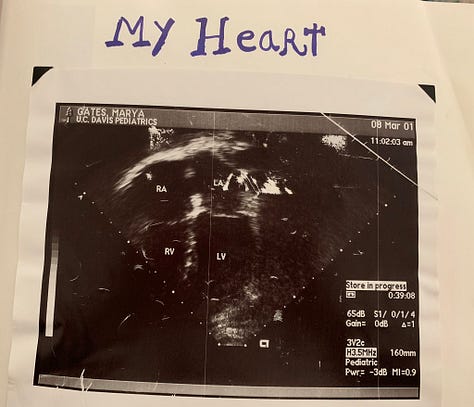
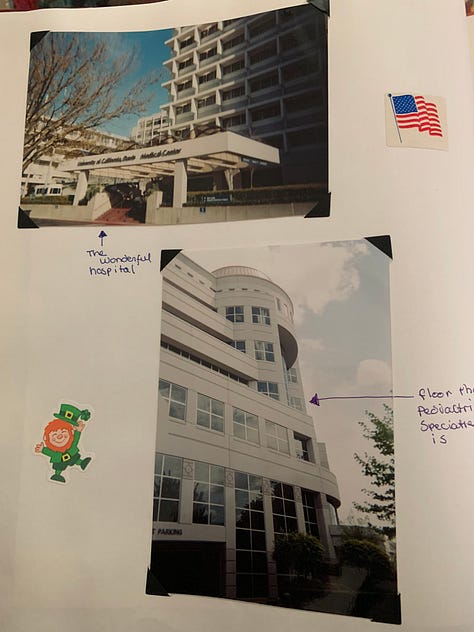
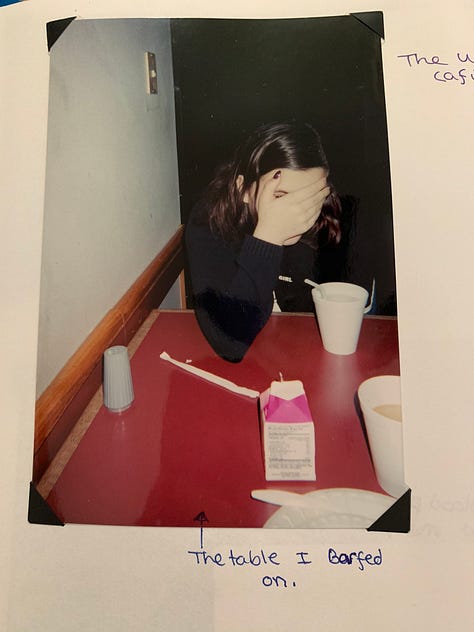
After I had my surgery I recovered for a few weeks at home. All and all I think I spent about six weeks out of school. When I got back, kids told me they had heard I died. I was asked a million questions about my pacemaker and whether I could still stand near a microwave or not (I can). I received a lot of attention, most of it positive. Some of it negative, like the boys who used to pretend to “murder” me by miming hairdryers in my direction (I still don’t know why they thought a hairdryer would turn off my pacemaker). I also knew how much pain my parents had gone through in those weeks. I watched them put on a brave face despite the panic they felt at the chance they might lose me. I didn’t think very much about my own life at this point. I didn’t think about what a miracle it was to be alive or that I had come that close to death. I didn’t really think about a lot of things. I just did my best to get back into my life like everything was normal.
But everything was not normal. I had almost died. I think it affected me a lot more deeply than I had realized. And my depression came back, worse than it ever had been. I spent the rest of my high school years mostly struggling against it alone, not letting anyone know how I felt. How could I tell anyone that I thought about dying all the time when I had just been given a new lease on life? Wouldn’t they think I was ungrateful? I don’t know what they would say, but I was afraid to open up to anyone.
Things came to a head my junior year of high school after I had a pretty bad manic episode which led to me being placed in foster care for a spell. It was a pretty extreme time in my life, but it did lead to a proper diagnosis with Bipolar II and my first time in therapy. When I went to college my mental health had its ups and downs, including another bad manic episode, but I did eventually land in a place where I could manage my disorder. However, like Kate, I also spent a lot of time not really taking care of my heart. I missed a lot of check-ups, mostly preferring to ignore that I had a life-long responsibility to keep up with my pacemaker care, while at the same time always being aware of my own mortality. I can feel the pacemaker inside me at all times. It is a strange feeling and one I have spent twenty-five years trying to wrap my consciousness around.
Also like Kate I spent a good deal of my twenties (and my thirties) navigating a strained relationship with my parents. During my years in college at U.C. Berkeley I had built for the first time in my life a community of friends that I spent time with in person. But my relationship with my parents had not been going great. Thing had gotten really bad the winter of 2006. I was not going home for Christmas that year. About a week before the holiday I was using the landline phone at the frozen yogurt shop where I worked to do a pacemaker check (back then you could only use a landline phone to do remote checks; now you can use a cellphone app). Bad news: my pacemaker was failing. I had missed a few months of checks, so it was go time. A friend’s mom drove me to the train station in Oakland so I could go to the surgery in Sacramento. I stayed with another friend the night before the surgery. I stayed the night in the hospital after the surgery alone and the next day took the train home. The yogurt shop asked if I could come in the next day — Christmas Eve — and take the closing shift. I served people fro-yo with my arm in a sling, then I went back to my shitty college apartment that didn’t have any heat and celebrated the holiday alone. It was the bluest, most lonely Christmas of my life.
After that moment I think I became more acutely aware that I could not ignore my health, but also that it would dictate so much of my life’s choices. After college I wanted to join the Peace Corps. They told me they couldn’t guarantee that if something happened with my pacemaker I would be okay, so I didn’t join. When I was twenty-six, like most Americans, I was kicked off my dad’s health insurance. This was a few years before Obamacare came into effect, so I was deeply worried I would be denied health insurance because of my pre-existing condition. Once Obamacare became the norm, I spent the next decade or so working in corporate America because I wanted to be sure I had health insurance that would cover my next surgery.
In 2016, I had just moved to Georgia to work at Turner Classic Movies, my first time living outside of California. It took awhile to get myself set up changing states. So while I had to set up my health coverage in the new state, I hadn’t gotten on track with my pacemaker checks. Apparently on the eve of the 2016 election, we all know what happened that night, my pacer started to fail. A few days before the company Christmas party I felt very strange indeed and was able to get a last minute appointment with a cardiologist the day of the party. History had repeated itself. I was due for a new pacemaker almost ten years to the day of the second surgery. I would spend another Christmas recovering without my family. Although this time my co-workers were generous in helping me. One of them drove me to and from the surgery (it’s out patient now; you don’t spend the night anymore). A few of them brought me groceries. One even helped clean out my cat’s litter box while I was recuperating. I might still have had an estranged relationship with my family, but once again my community was there for me.
Eventually I moved back to California for another job change, but towards the end of 2020 I left that job without another one in sight. I didn’t want to make choices and limit myself because of my medical condition. Since then I have spent four years working as a freelance writer. I moved to yet another new state — Illinois — to live with my partner. I am of course still deeply aware of my pacemaker, of how it keeps me alive, and to some extent limits what I can do with my life. But I also know that no matter where I am, my community will have my back, and I will find a way to make the surgery work. I’ve also patched it up with my family as best as I think I can, even though a lot of the trauma from the past still lingers. Over the years I’ve found that sometimes, if you can, you just have to choose to let things go1.
Christmas is still a time where conflicting emotions course through my brain — and my heart — but it’s not as painful as it used to be. When I watch Last Christmas and see the struggle that Kate faces coming to terms with her own survival and with her family, I understand how she feels. I understand her confusion and her self-centered behavior. I wish my own struggle wrapped up as neatly as hers did, but that of course is not how life works. Regardless, I am grateful for this film, the way it makes me feel seen, and the Christmas magic it attempts to put out into the world.
Shout out to Tom Hanks as Mister Rogers in the opening scene of Marielle Heller’s A Beautiful Day In The Neighborhood who told me, or I guess everyone in the audience, but definitely me, that forgiveness is “a decision we make to release a person from the feelings of anger that we have at them.”




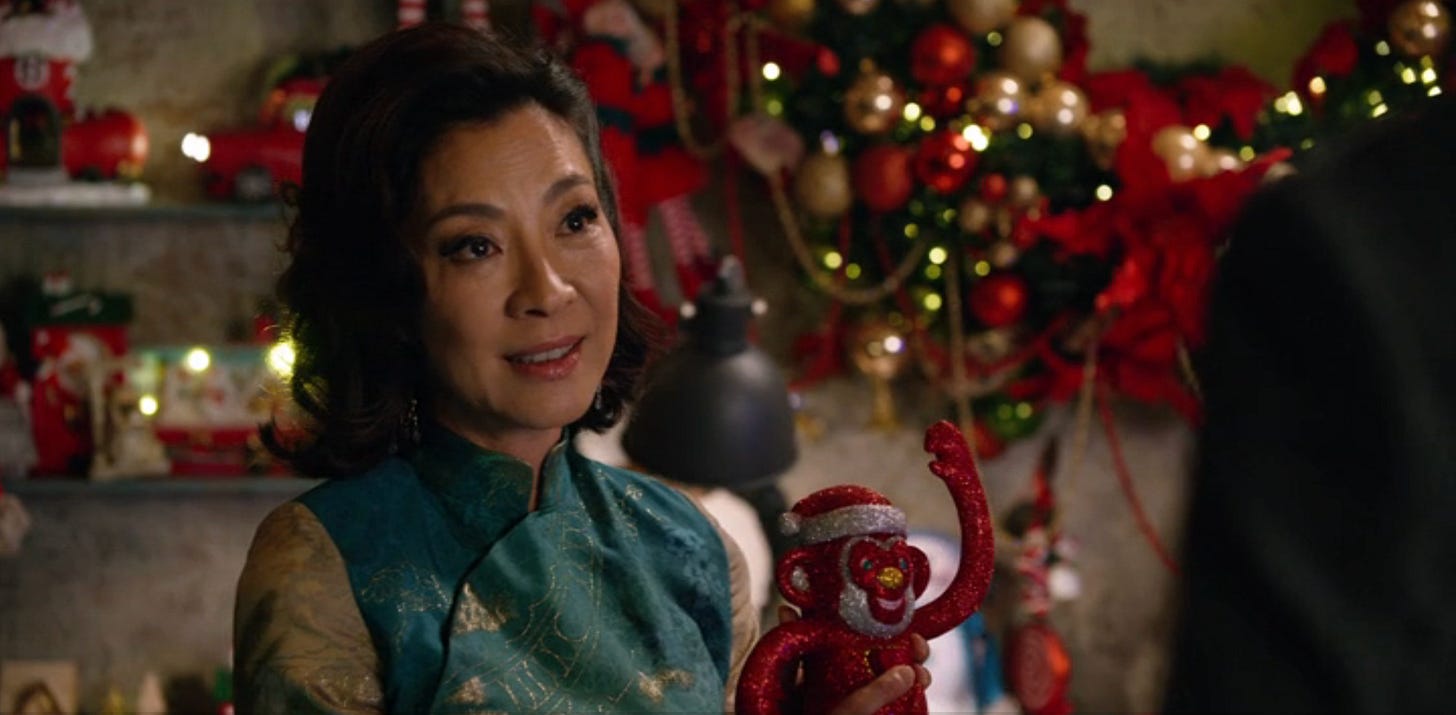
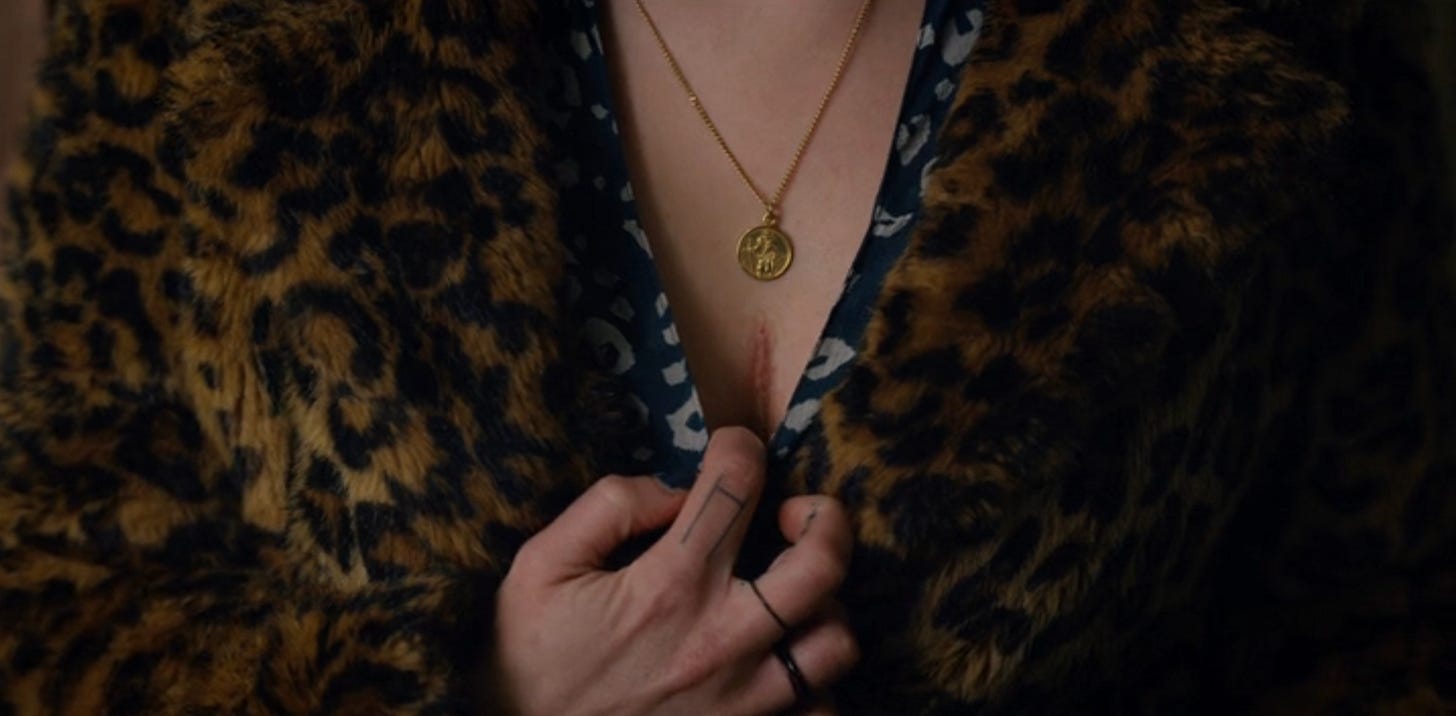
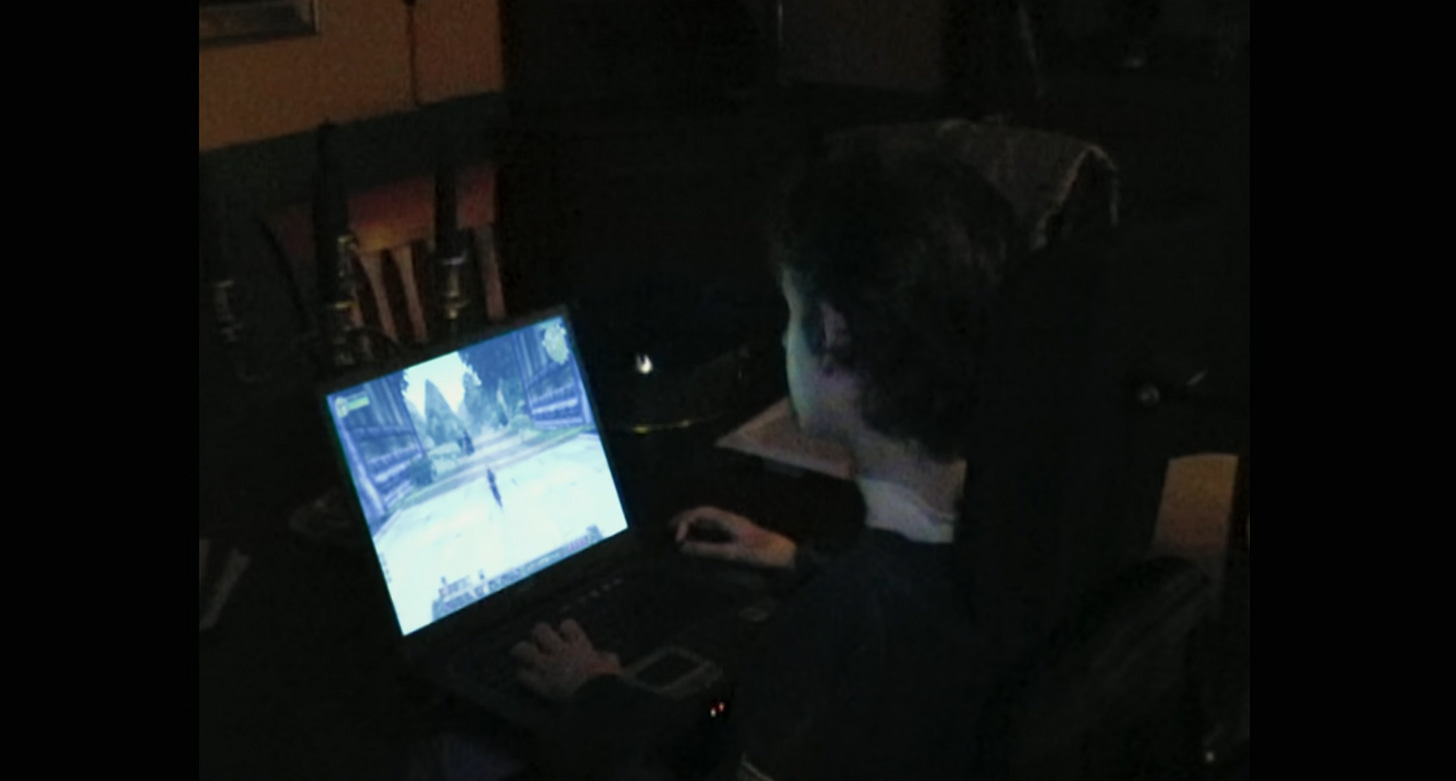
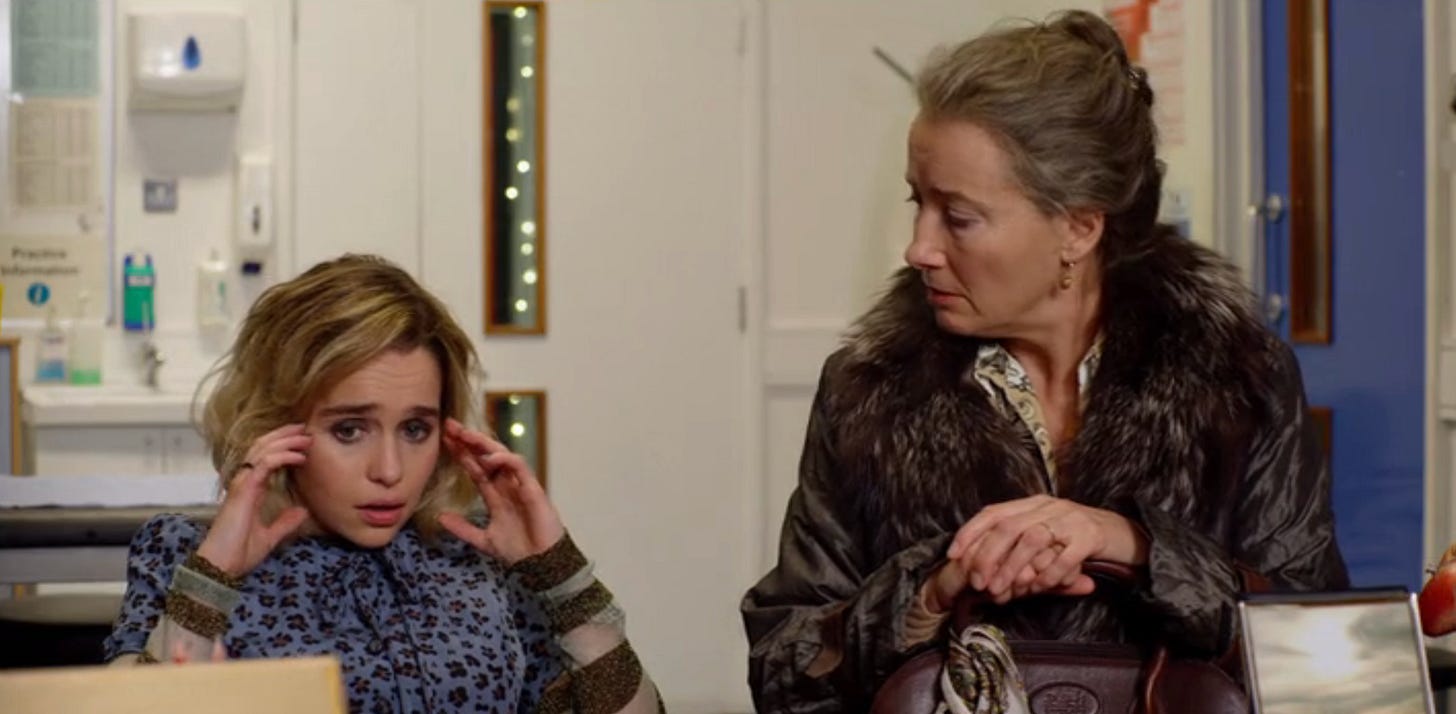
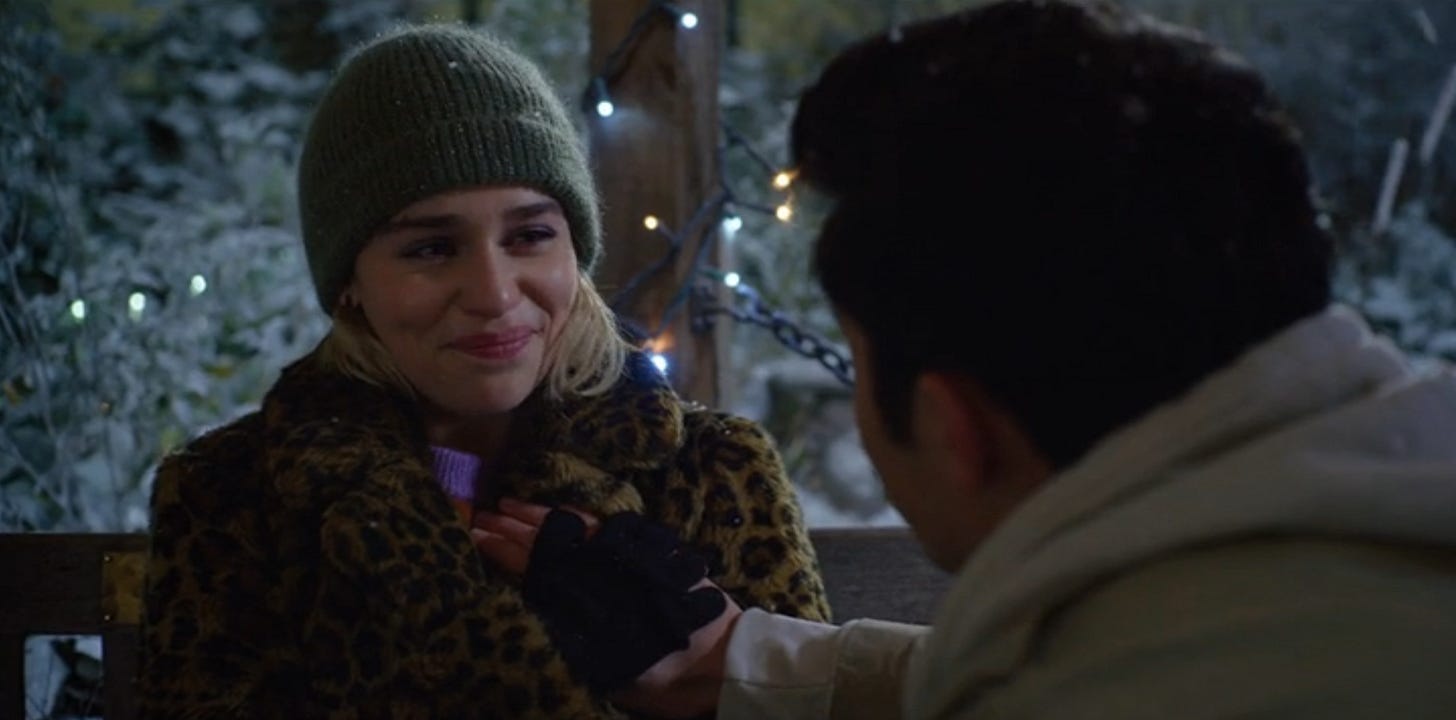
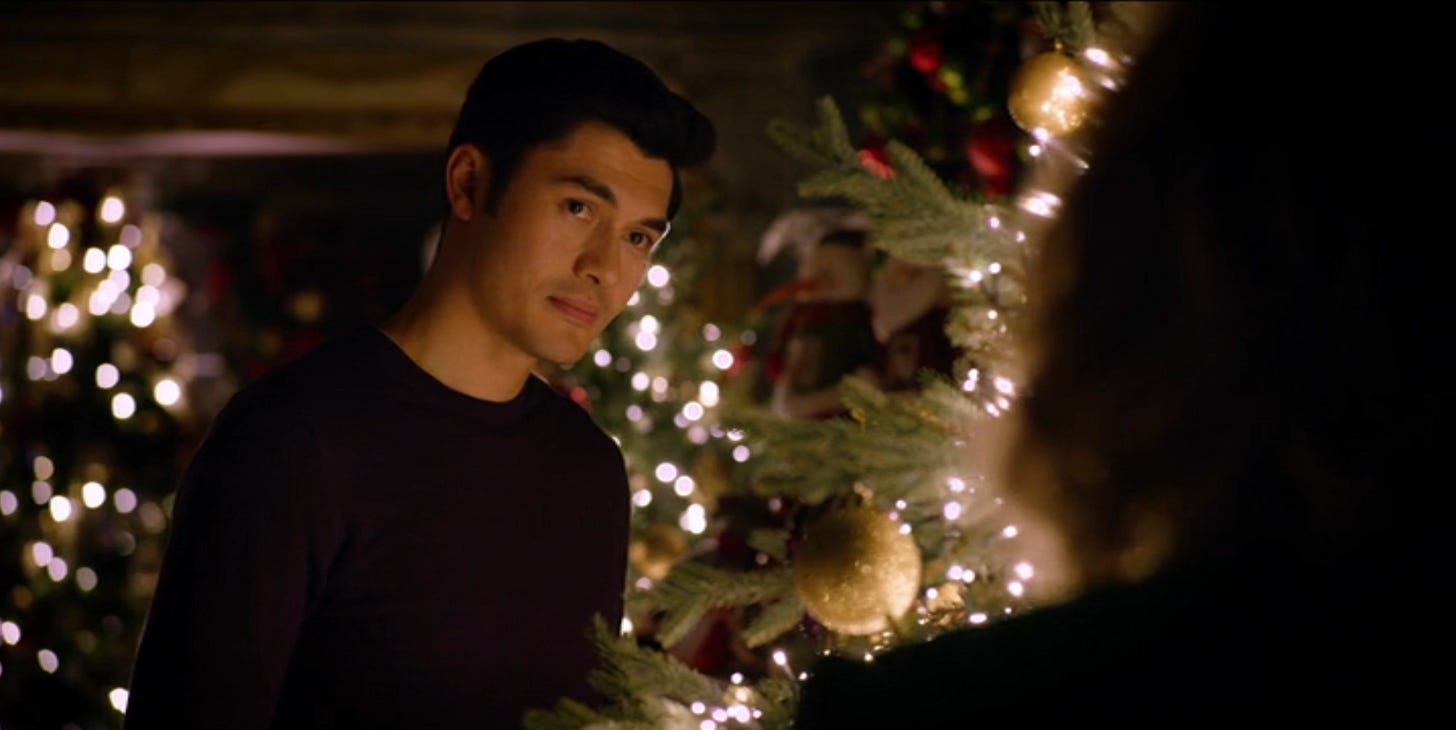
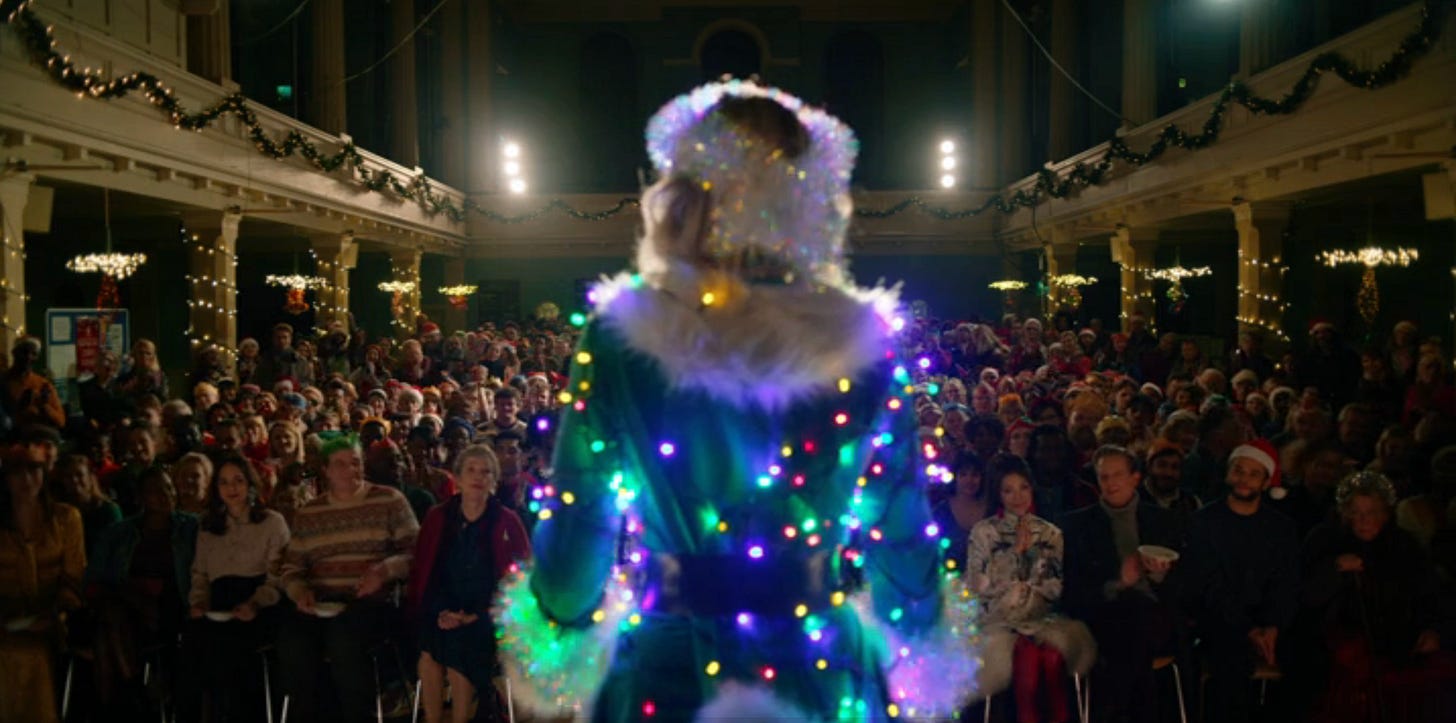
Thank you for sharing this Marya!!! So beautifully written. Happy holidays! <3
Sending you love.